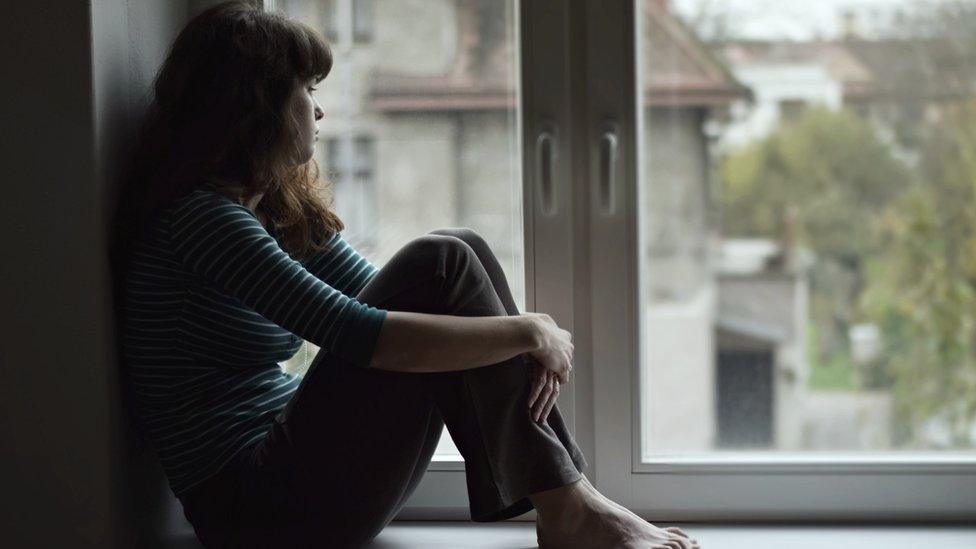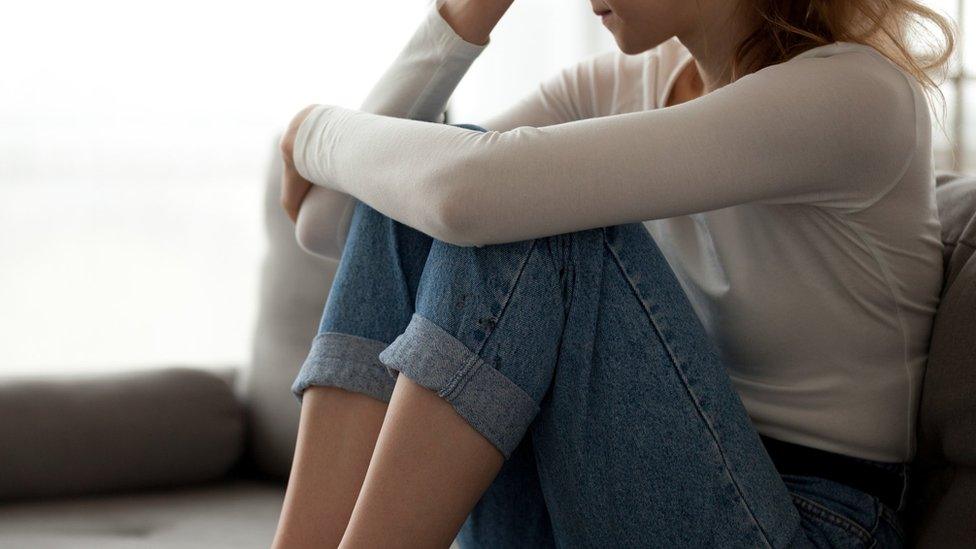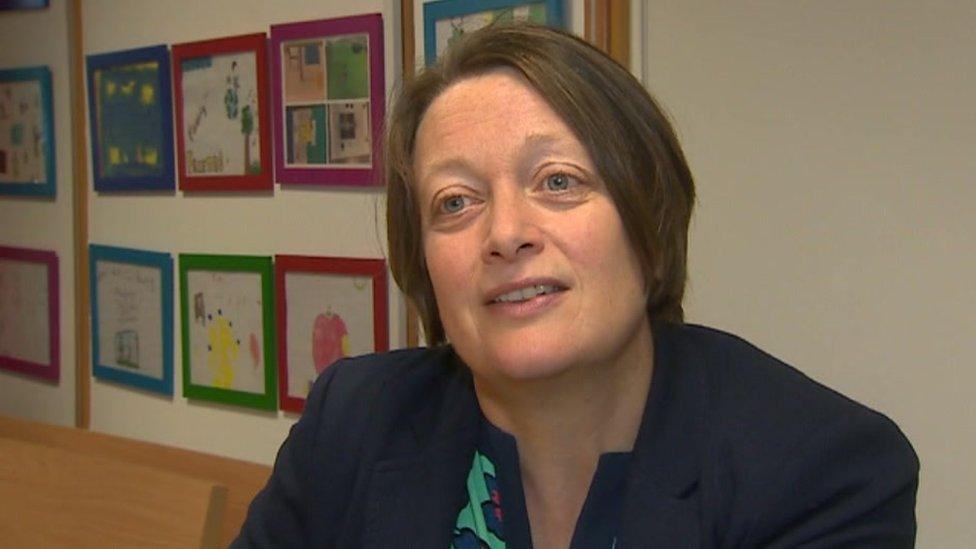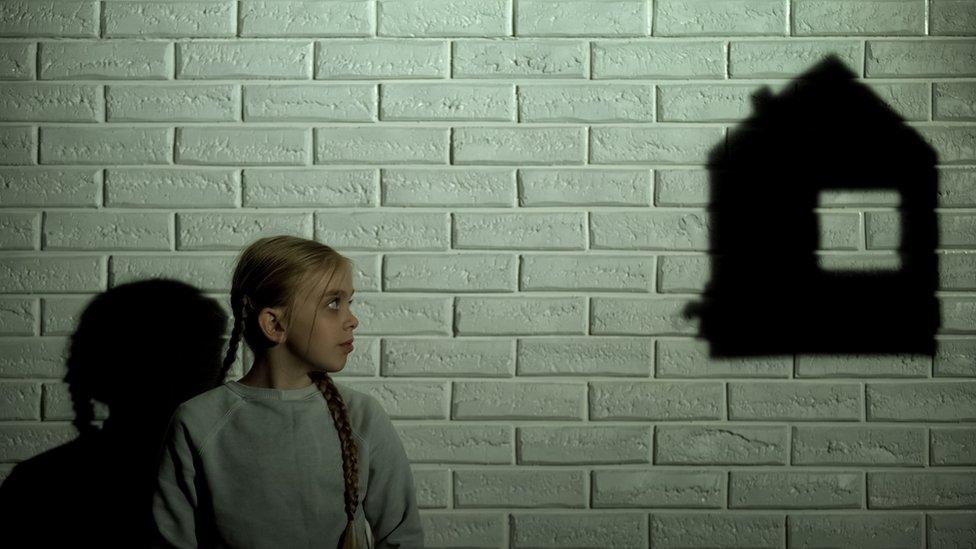Vulnerable children 'passed from pillar to post'
- Published
- comments

Sally Holland says children are being lost "in a maze of bureaucracy"
Vulnerable children face long waits to access services and some are "being passed from pillar to post" between services, a report has found.
Children's Commissioner for Wales Sally Holland has called for major changes in mental health and wellbeing care.
Her report said it was even more important that services come together to provide tailored help which meets vulnerable children's individual needs.
The Welsh Government admitted improvements were needed.
Prof Holland's report also said children are finding themselves "lost in a maze of bureaucracy".
"There are glimmers of hope which confirm to me that what I'm calling for is not unobtainable," she said.
"I've seen some areas taking a 'no-wrong door' approach, where children can enter the system from any point and where professionals come together to find out what help they can all offer, where flexible care is delivered to meet individual's needs."
But she added: "We need ambitions and plans to put initiatives like these in place everywhere at pace, it's just not good enough to only have pockets of good practice which aren't reflected elsewhere."
'I've never felt so helpless as a parent'
One mother said her son was 10 when she became concerned about his mental health, and he has had suicidal thoughts for three years.
Jane - not her real name - made attempts to seek help but failed as she was referred to several different departments for more than a year which left her feeling "helpless".
"My son was starting high school and struggling," she said.
"It's scary when you've got an 11-year-old saying he wants to kill himself and asking you to help him and saying he doesn't want to be here anymore. You don't know what to do or where to go to help him. I've never felt so helpless as a parent."
Jane said they were "shunted off" from different areas and struggled to know where they were in the system.
She added: "I've got a good understanding of how the health care system works but it's still a complete minefield."

'12 months of battling'
Deborah - also not her real name - has cared for Catrin since February 2019 as a result of her mother's drug and alcohol addiction, and has recently become her legal guardian.
She has been left frustrated by the help available for Catrin's mental health issues, which has included self-harming.
"She was desperate for help. There was a wait of around three months before she had an assessment and another wait of two months where we were told Catrin had been put on a waiting list," she said.
"During this time Catrin self-harmed to the point we had to take her to A&E for stitches. I found her in the bathroom, covered in blood and just sat there resigned."
Catrin is now getting help from a crisis team but Deborah said it only came after "12 months of battling".
She added: "The saddest part about all of this is it comes down to money. There is a child at the centre of all this who has had a traumatic childhood, and services have not been provided and essentially still aren't."
Deborah criticised the communication between health and social care services and said it "scares me" as to what point it reached before help was put into place.

Children's commissioner Sally Holland wants to see faster action
The report found the most advanced example of a "no wrong door" approach was in the Gwent area, which is covered by five local authorities and the Space-Wellbeing programme.
It involves different services meeting weekly to discuss new referrals from GPs, schools, social services, parents and families.
Space-Wellbeing said the aim was to provide each child with "the right help, first time, at the right time for their mental health and emotional wellbeing needs."
A Welsh Government spokesman said: "We are making progress in improving mental health support for children and young people in the context of an increasing demand for services, but we acknowledge there are still improvements to be made.
"We are clear that the only sustainable way of responding to rising demand and the multifaceted nature of mental health support is to ensure that there is good, universal support available as well as good access to specialised services."
- Published8 June 2020

- Published27 February 2020
